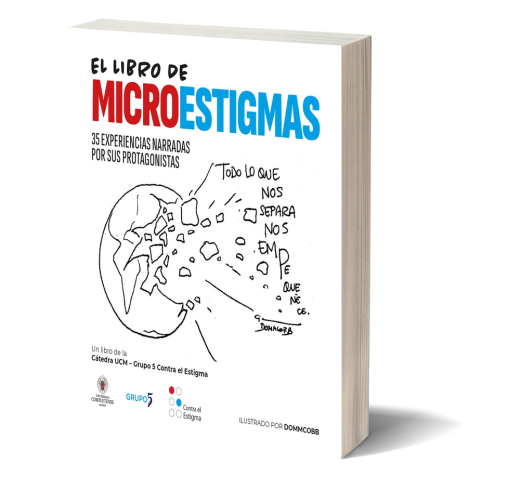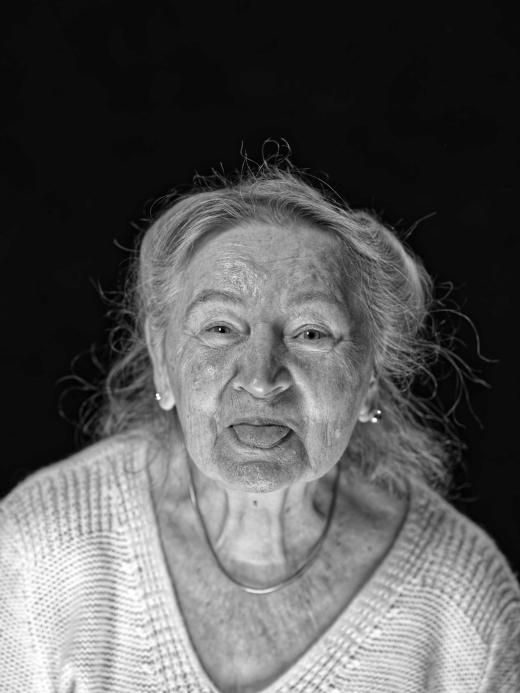Mental health: Clariane’s teams are taking action to lift taboos

Psychiatric disorders, whether they concern mood disorders, addictions, eating disorders or more severe psychiatric conditions, are today one of the main causes of chronic illnesses in Europe. Because there is “no health without mental health”, World Mental Health Day is celebrated every 10 October in conjunction with the WHO, as an opportunity to raise awareness of this public health issue, which is still subject to ongoing prejudices in the collective imagination. For the event, Clariane, a major player in mental health in Europe, wanted to highlight the micro-stigma programme run by Grupo 5 in Spain and the Rictus project run by the Clinique du Pays de Seine – Inicea in France.
Tackling the stigma of mental health is a necessity
Mental health stigma is a serious problem that has harmful consequences for individuals and society as a whole.
In mental health, stigma refers to discrimination, prejudice, and marginalisation of people with mental health issues. This stigma is detrimental in several ways, affecting not only the lives of the individuals concerned, but also society as a whole.
Its effects include:
- A barrier to accessing care: stigma can deter people from seeking help due to fear of social judgement. This can delay treatment and worsen mental disorders.
- Social isolation: people who are stigmatised often find it difficult to maintain healthy social relationships, which can lead to isolation and increased emotional distress.
- An impact on self-esteem: stigma can lead to lower self-esteem and loss of self-confidence in individuals, worsening their mental health problems.
Key figures on mental health and stigma
- According to the WHO, about 25% of Europeans suffer from mental disorders every year.
- Suicide is closely linked to mental health. In Europe, around 138,000 people commit suicide every year, and a significant percentage of them had untreated or poorly managed mental disorders.
- A WHO study in Europe revealed that stigma often surrounds mental disorders, affecting the quality of life of those affected.
- Around 15% of people with mental health problems in Europe reported being discriminated against at work because of their mental health, according to the European Agency for Safety and Health at Work.
Sources:
Qualitative analysis of mental health service users’ reported experiences of discrimination
Listen, respect, understand: presentation of the book on micro-stigma by Grupo 5
What is micro-stigmatisation?
Every day, we find that there are subtle, automated, almost imperceptible behaviours that are stigmatising, and that many of us adopt under the guise of “good intentions”, without having the express intention of excluding anyone.
Whether small comments, jokes or non-verbal behaviours, these behaviours, known as micro-stigmatisations, maintain and aggravate stigmatisation. They perpetuate stereotypes and prejudices.
El libro de los Microestigmas, the book by Grupo 5 (mental health and social services network of the Clariane community) designed with the UCM chair, presents many examples of micro-stigmatisation, such as:
- talking to an adult in a childish way because they have a disability, assuming that their abilities are impaired;
- feeling sorry for the fate of people with mental disorders;
- assuming that a person with a mental disorder will not be able to study or work normally.
While at first sight, these micro-stigmatisations may seem harmless or even amusing, their effects are all the more damaging to the stigmatised people.
El libro de los Microestigmas uses 35 life stories of fragile people (people living in precarious situations, people with disabilities, people with mental health problems, etc.) to denounce these micro-stigmatisations and raise society’s awareness of the right to be different and to neurodiversity.

What if a simple photo could help change our outlook?
Close-up portraits in black and white on a black background. Spontaneous, unique grimaces that reflect the character and personality of each participant. It’s a way of doing away with an often discriminatory prescriptive approach!
The Rictus project (‘rictus’ means ‘grimace’ in French) run by the Clinique du Pays de Seine – Inicea (the health facilities of the Clariane community in France), aims to overcome our apprehensions about differences and to see disability in a different light, without fear or condescension. People with mental/psychological disabilities and multi-professional teams were able to let go of their apprehensions and take on the objective, on a reciprocal and equal footing!
Being photographed together can also lead to new professional relationships based on respect, empathy, exchange and kindness. The often routine and repetitive nature of daily institutional and educational life leaves very little room for the unexpected, the spontaneous and the raw creativity of each individual.

